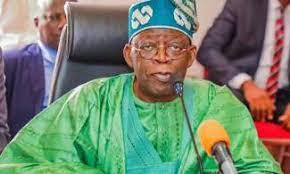Not unmindful of the floatation of a development stock by the Colonial government in 1946, the doors of a formal market for raising long term funds in Nigeria actually opened in 1960, same year as the country’s independence, on the heels of the incorporation of the Lagos Stock Exchange and commencement of operations the following year pursuant to the recommendations of the Barback Committee. So, about sixty years after a formal capital market took off in Nigeria, the pertinent question to ask is: where is it headed?
Arguably, compared to other sectors of the Nigerian economy, the capital market has evolved from a very tepid beginning to a force that is reckoned with in the country’s financial system. As a matter of fact, one can point to notable developments in the capital market since the Lagos Stock Exchange, renamed in 1977 as the Nigerian Stock Exchange, commenced operations. With just 19 Securities (comprising 3 Equities, 6 Federal Government Bonds and 10 Industrial loans) listed for trading in 1961, the flagship Exchange in Nigeria now boasts of over 300 Securities. In 1984, the NSE All Share Index was launched while the Central Securities Clearing System started in 1997.
Other landmarks worth remembering include the introduction of the T+3 settlement cycle in 2000, the Trade alert in 2005 and the first Exchange Traded Fund in 2011. Today, it can be said that the capital market in Nigeria has expanded the menu of product offerings beyond equities and bonds. Further, market infrastructure has been modernized and strengthened. The NSE, for instance, introduced a modern trading engine known as X-Gen in 2013 and has since implemented remote trading. Platforms for Over-the-Counter trading namely the NASD and FMDQ together with three Commodity Exchanges namely the NCX, AFEX and the LCFE have contributed in advancing the frontiers of the capital market ecosystem. Admittedly, market regulation was strengthened following the establishment of the Securities and Exchange Commission in 1980 and the enactment of the Investment and Securities Act as amended in 2007. Improved regulation and confidence building measures introduced by the SEC and the NSE over the years, including a zero-tolerance for infractions and the setting up of the Investment and Securities Tribunal by the government pursuant to the Investment and Securities Act, have helped in no small measure to lift the market.
The Capital Market Master plan
When the 10-year (2015-2025) Capital Market Master Plan (CMMP) was launched in November 2014, it was meant to harness the potentials of the market in catalysing economic growth and development. Consistent with the CMMP, the SEC undertook a raft of initiatives to enhance transparency and boost investor confidence notable among which were the Direct Cash Settlement scheme designed to ensure that investors received money directly whenever securities were sold, the Corporate Governance scorecard for companies listed on the Nigerian Stock Exchange meant to foster good governance practices by public companies as well as the recapitalisation of capital market operators aimed at improving their baseline infrastructure and service delivery.
As a complement, the NSE implemented minimum operating standards for market operators, set up an Investors Protection Fund as well as introduced a Whistle Blower policy. In addition, physical share certificates have been fully converted into electronic form in what is known as dematerialisation of share certificates.
Also, activities in the non-interest capital market space gained traction with the introduction of Sukuk bond. Indeed, over the last six decades, it would be difficult to argue that the capital market in Nigeria has not made remarkable strides.
‘Seems very fast’
Despite these accomplishments, the journey to making the Nigerian capital market “one of the largest, most liquid, most diversified and most sophisticated emerging markets by 2025” as envisioned by the CMMP seems very far.
The market is still shallow and yet to be properly positioned to support Nigeria’s economic priorities. At less than 20 per cent of the country’s GDP, the size of the capital market constrains its role in economic development. Compared to South Africa with over $1trillion in market capitalization representing over 200 per cent of the country’s GDP, the total market capitalization in Nigeria actually pales into insignificance.
A few years ago, the NSE had set a target of $1trillion market capitalization by 2016 but it never materialized. Closely tied to this is the non-diversified nature of the issuer base with listing concentrated in a few sectors as well as the small number of listed companies (less than 200) in a country touted as the biggest economy in Africa.
As a corollary, market liquidity, measured by turnover, remains a challenge despite the appointment of market makers in 2012 expected to provide liquidity to securities through the provision of bid and offer prices. One implication of this is that compared to South Africa for instance, Nigeria would not be the preferred choice for bigger listings given that a strong price discovery system is often associated with a significant turnover which presupposes a larger pool of buyers and sellers
Enhancing capital market competitiveness
Today, the consensus view is that both the government and the regulators need to put in place measures to enhance the competitiveness of the Nigerian capital market in order to unlock its potentials. Some major initiatives in the CMMP designed to enhance its contribution to the nation’s economy include establishing a National Savings Strategy, reducing the tax burden for listed companies, promoting capital market participation in the listing of government-owned firms as well as granting incentives for companies in priority sectors to get listed. Others include establishing specialised funds to support critical economic sectors as well as incentivising venture capital and private equity. All of these will entail proactive and sustained engagement with the Executive and the Legislature which is why ownership of the CMMP at the highest level promises to yield dividends as the experience of countries with success stories in capital market plan execution have shown.
A few examples will suffice here: in Kenya, a high-level committee championing the implementation of the Capital Market Master Plan is chaired by the Cabinet Secretary National Treasury (the equivalent of a Finance Minister). Other members of the committee include the Attorney General, Cabinet Secretary Agriculture, Cabinet Secretary Mining, the Governor of the Central Bank of Kenya, the CEO of the Capital Markets Authority among other top government officials. Sri Lanka shares a similar experience where the Capital Market Advisory Council is the key driver and is chaired by the Secretary to the Sri Lankan Treasury with the Governor of Sri Lanka Central Bank as a member. In Malaysia, the Prime Minister championed the successful implementation of its first 10-year (2001-2010) capital market master plan. Not surprisingly, the outcome was phenomenal- market size nearly tripled from US$186bn in 2000 to US$517bn by 2010. The success of the plan paved the way for the launch of a second master plan currently being implemented till end of 2020.
Back home in Nigeria, the 12-member Capital Market Master Plan Implementation Council (CAMMIC) which comprises the DG SEC, Deputy Governor (Financial System Stability) of CBN, DG PENCOM, CEO of the NSE, chairmen of the capital market committees of both chambers of the National Assembly and some other distinguished Nigerians should be expanded to include the Ministers of Finance, Justice, Budget and National Planning, Industry, Trade & Investment and Education. By so doing, it is easier to obtain the buy-in of the Federal Executive Council.
Government intervention
Quite frankly, there are compelling arguments why government intervention could spur capital market development. Empirical studies have shown that enabling government policies significantly influence issuer demand for capital markets funding. China is one good example of this trend. In emerging markets in particular, listing of state-owned enterprises has proven to be one of the strongest levers for influencing issuer demand. This must be the intent of some provisions in the Petroleum Industry Bill. The version of Petroleum Industry Governance Bill (PIGB), as passed by the 8th National Assembly, provides for the establishment of the Ministry of Petroleum Incorporated (MOPI) which shall hold shares on behalf of the government in the two commercial entities to be established namely the Nigerian Petroleum Assets Management Company (NPAMC) and the National Petroleum Company (NPC). Specifically, Section 66 of the PIGB provides that ‘’the government shall within 5 years from the date of incorporation of the NPC divest in a transparent manner not less than 10% of the shares of the NPC and within 10 years from the date of incorporation divest not less than an additional 30% of the shares of NPC to the public’’.
Uche Uwaleke is a Professor of Capital Market and the President of the Capital Market Academics of Nigeria




